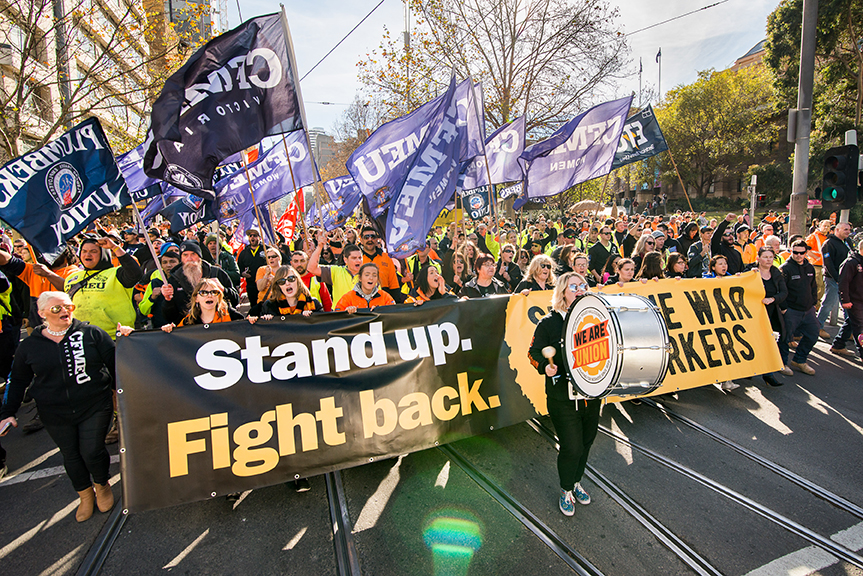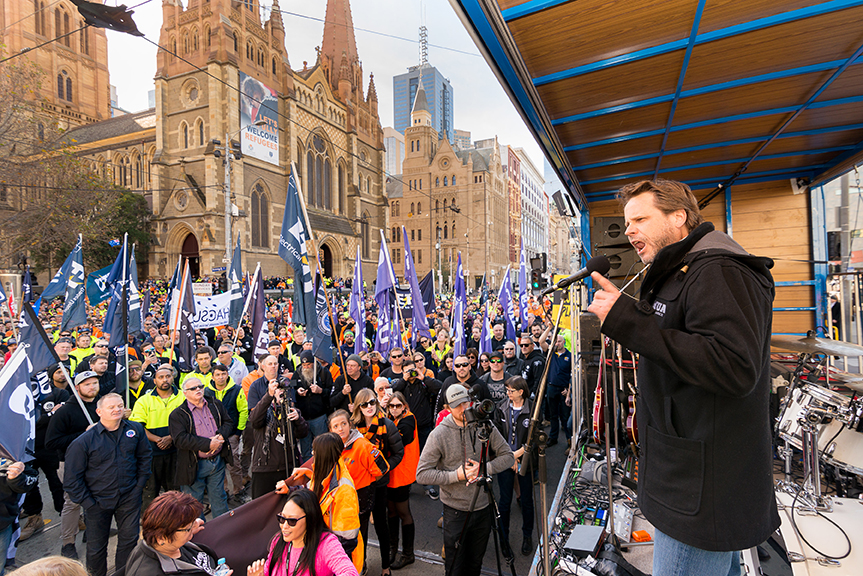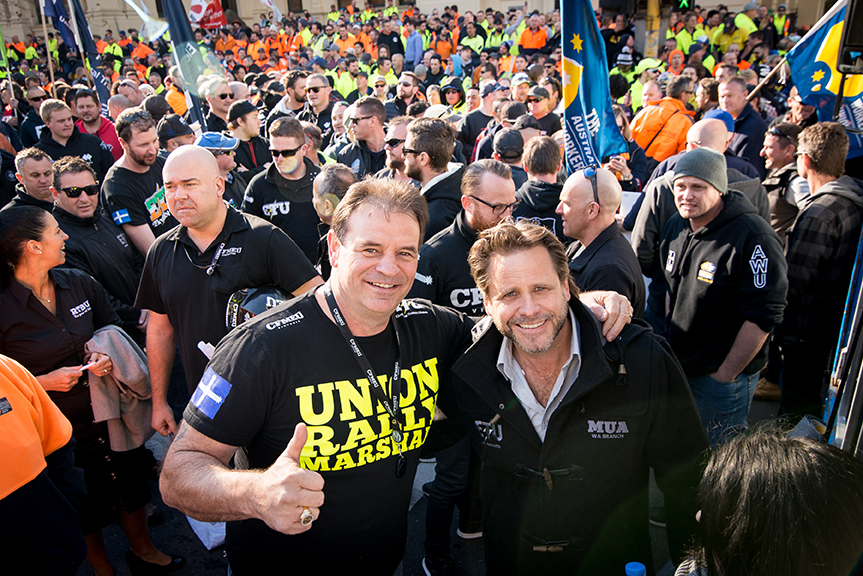
The fightback begins to change the rules
20,000 unionists flooded the streets of central Melbourne in June to protest the establishment of the ABCC and the Turnbull Government’s wider war on workers.
After almost 30 years of uninterrupted economic growth we are seeing unprecedented attacks on working people. Malcolm Turnbull and his government have:
- Brought back the ABCC to cut wages, conditions and safety for construction workers
- Allowed exploitation of overseas workers to continue unchecked
- Allowed rampant wage theft by employers
- Slashed Sunday penalty rates for retail and hospitality workers.
The ABCC – how did we get here?

The ABCC (Australian Building and Construction Commission) was established in 2005 under the Howard Government as an independent statutory authority “responsible for monitoring and promoting workplace relations in the Australian construction industry”.
In reality the ABCC harassed and intimidated construction workers, stripped them of their right to silence and prevented unions and workplace representatives from acting on health and safety concerns. During the period of John Howard’s ABCC, deaths on construction sites were at the highest level in the past decade.
The ALP abolished the ABCC in 2012, but it remained a key priority of the Liberal Party to bring it back. They have made several attempts to pass legislation reviving the ABCC, each of which was blocked by the Senate – until now. In February of this year, the ABCC legislation passed into law thanks to the backing of Senators Derryn Hinch, Nick Xenephon and the One Nation Party.
The rules are broken and need to be fixed
 The following examples demonstrate how our workplace laws are broken and need to be fixed:
The following examples demonstrate how our workplace laws are broken and need to be fixed:
- CUB brought in a labour hire company, they colluded with that labour hire company and they demanded that the labour hire company initiate an agreement with a 65% cut to wages. Then, for 185 days they tried to starve that workforce out, under Turnbull’s green light. The unions stood strong, remained disciplined and we won that fight. Had we blockaded the Brewery, CUB would have had the right to sue us out of existence. Yet there have been absolutely no repercussions for CUB for their thuggery against their own workforce.
- For 27 years, MUA members crewing the MV Portland have been running the route from Melbourne to Perth, picking up alumina and delivering it to Alcoa’s Portland smelter. A little over 12 months ago, Alcoa hired a security firm to remove the crew from the ship in the middle of the night. They were immediately replaced with a foreign crew paid just $2 per hour.
In an echo of the CUB dispute, maintenance workers at Esso’s Longford Gas Plant are resisting an attempt by the company to cut their pay by 30% by forcing them to sign up with a new contractor. Under the deal on offer they would also face reductions in offshore allowances and annual leave, cuts to loadings and harsh anti-family shift rosters.
- Crown Casino is sacking their gaming machine technicians and cutting the pay of their replacements by 50%. The replacement workers will be pushed onto the award and
forced to work for outsourcing firm Amtek. The workers will cop a $46,000 pay cut to less than $38,000. These workers make Crown rich, and thought they could rely on their EBA until at least its expiry in 2019. Documents reveal that Jeff Kennett, the former Liberal Premier of Victoria, is a major shareholder in the outsourcing firm. Kennett granted Crown their licence when in power, and opened the Casino.
This time we’re getting what we want

In 2007 unions in Australia made the mistake of winding down the Your Rights at Work campaign. The result was the Rudd Labor Government passing work laws that didn’t go far enough – and have major loopholes for the bosses.
Bill Shorten has said the ALP will abolish the ABCC. But it’s about so much more than the ABCC. We want to fix the rules that allow corporate power to grow while ordinary people and their unions have our hands tied. Fixing the rules means a complete re-write of the Fair Work Act. It means introducing principles to the law that make wages go up – not down. It means bringing back the right to organise, to strike, to stand up when we need to.
The secret to any lasting change is getting the people on side and then keeping the politicians accountable to the people. We’re up for the fight.